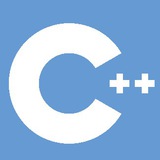We are now taking participations for user blogs.
Here, for every quality article we will post blog that on our channel.
Submit your link to blog directly to @dailycppbot.
Here, for every quality article we will post blog that on our channel.
Submit your link to blog directly to @dailycppbot.
Warning : Bot will only accept one message at a time. So, don't start any chit chats.
The Daily C++ via @like
The Pasture
A Weakness in the Niebloids
Niebloids in range-v3 and other libraries has successfully demonstrated its prowess in avoiding ADL screwups while enabling those extension points of the same manner. But it’s not for all extension point APIs: there are a few weaknesses in
A book about the mathematics behind C++ Template and Standard Library
https://elementsofprogramming.com/
https://elementsofprogramming.com/
1. An Experimental Floating-Point Scalar Evolution
2. Using Floating-Point Scalar Evolution to Propagate Fast-Math Flags
3. Using Floating-Point Scalar Evolution to Simplify Instructions
4. FPSCEV - Improving the Range Analysis
2. Using Floating-Point Scalar Evolution to Propagate Fast-Math Flags
3. Using Floating-Point Scalar Evolution to Simplify Instructions
4. FPSCEV - Improving the Range Analysis
Neil Henning
An Experimental Floating-Point Scalar Evolution
The TL;DR - after a conversation at EuroLLVM with Steve Canon about how LLVM is missing scalar evolution analysis for floating-point, I’ve spent some spare time hacking on a new LLVM analysis pass - fpscev (Floating-Point SCalar EVolution) - available here…
Google Robots.txt parser has been published, and it's implemeted in C++
https://opensource.googleblog.com/2019/07/googles-robotstxt-parser-is-now-open.html
https://opensource.googleblog.com/2019/07/googles-robotstxt-parser-is-now-open.html
Google Open Source Blog
Google's robots.txt Parser is Now Open Source
